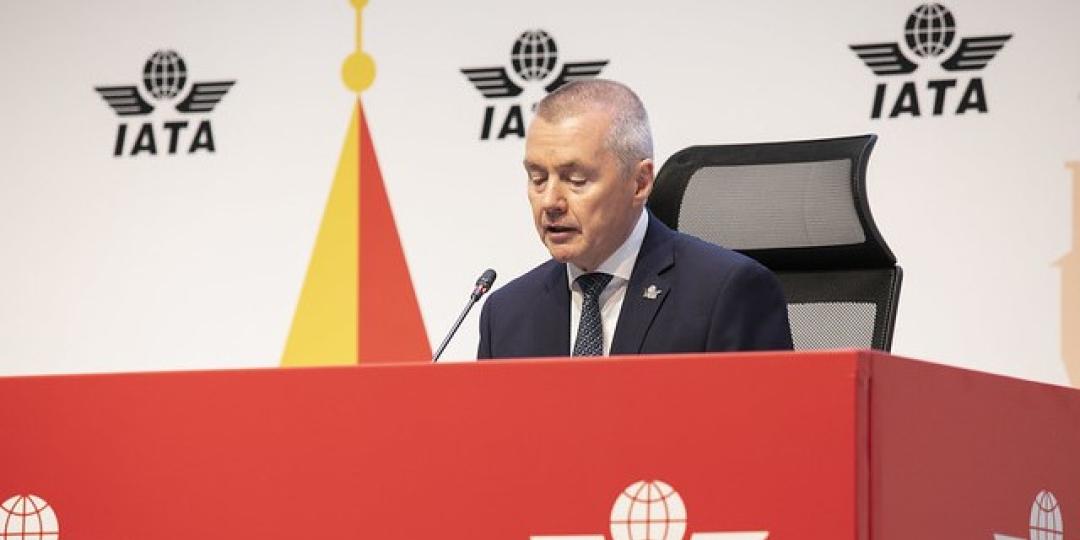Acsa has refuted accusations by Iata that its airport tariffs are too high. This follows a speech yesterday (May 5) by Iata Director General Willie Walsh at the association’s AGM and the World Air Transport Summit.
Walsh highlighted that airlines were en-route to a profitable, safe, efficient, and sustainable future.
“The pandemic years are behind us, and borders are open as normal. Despite economic uncertainties, people are flying to reconnect, explore, and do business. Latest data show passenger traffic at over 90% of 2019 levels. Airports are busier, hotel occupancy is rising, local economies are reviving, and the airline industry has moved into profitability.”
Margins ‘wafer-thin’
However, Walsh cautioned, margins were wafer thin. “With $803 billion of revenues, airlines will share $9.8 billion in nett profit this year. Put another way, airlines will make, on average, $2.25 per passenger.
“So, the value retained by airlines for the average plane trip won’t even buy a subway ticket in NYC. Clearly that level of profitability is not sustainable. But considering we lost $76 per passenger in 2020, the velocity of the recovery is strong.”
Walsh added that inflation continued, cost pressure was acute and, in some areas, labour was in short supply. “Unfortunately, many of those we do business with are adding to these pressures.”
The DG noted that some airports and air navigation service providers (ANSPs) were shifting costs to airlines. “There are grievous examples of some airports and air navigation service providers shifting the cost of their inefficiency to airlines.”
Amongst others, Walsh pointed out that OEM suppliers had been far too slow in dealing with supply chain blockages that were both raising costs and limiting airlines’ ability to deploy aircraft. “Airlines are beyond frustrated. A solution must be found.”
He further highlighted how airports in South Africa wanted to increase airport charges by 38%. This is not the first time Walsh has raised concerns about big price hikes by Acsa, with him highlighting the same issue in 2021.
Earlier warning
At the time he added Acsa to Iata’s list of airport operators exhibiting “unacceptable behaviour” by trying to command inordinately high increases in tariffs from their customers, who are in dire financial straits.
Walsh accused operators who were planning the increases, of compromising the economic recovery of their countries by their greed, stalling recovery in air travel and damaging international connectivity.
“Confirmed increases in airport and ANSP charges have already reached US$2,3 billion. Further increases could be ten times this number if proposals already tabled by airports and ANSPs are granted,” he warned
Acsa, however, pointed out in a press statement that it was “entirely incorrect” to claim that Acsa was simply shifting costs to airlines. “Any research conducted by Walsh will show that Acsa’s airport tariffs continue to be some of the lowest when compared to our international counterparts,” said an Acsa spokesperson.
“Acsa has issued detailed explanations on how tariffs are regulated in South Africa, and any decision to raise them goes through a rigorous process by relevant authorities.
“The aviation sector is an ecosystem that works well when all stakeholders collaborate for the greater good of the industry, especially as we continue to recover as an industry. What Walsh omits to explain in both his 2021 and 2023 speeches is the importance of this revenue stream to the sector.”
Aeronautical fees ‘essential sources of income’
Acsa noted that aeronautical fees were essential sources of income for airports. The use of airport facilities is subject to fees for both passengers and aircraft operators, and these fees are essential for infrastructure development and other purposes.
Airport tariffs include aircraft landing fees, parking fees and a passenger service charge. “These tariffs are set by the Regulating Committee within the Department of Transport. This committee is staffed by experts who act independently of regulated entities. The committee ultimately recommends tariffs to the Minister of Transport who has the final decision before tariffs are published in a Government Gazette.”
The Acsa spokesperson continued: “We have applied for a tariff increase in line with the regulatory framework, which results in 17.5% in the first year, 17.5% in the second year and 0% for the rest of the FY2023/24 to FY2027/28.
“The increases are driven by Acsa’s underlying costs and the independent traffic forecast that was approved by the Regulating Committee. It is important to note that the increases are also coming off a low base caused by clawbacks in the previous permissions where Acsa saw tariffs reduce by 35.5% in FY2017/18.”























